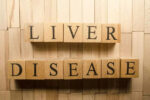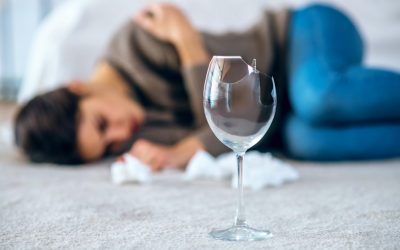Contents
You can take an actual relapse into account as part of your prevention plan. You can develop strategies that you’ll use if you do relapse to get back on track as quickly as possible. Relapse preventionmeans looking at your recovery plan as a way of preventing future relapses. Overcoming substance and alcohol use disorder is difficult. You might have been sober after treatment for three months before a relapse.
When we’re not in a good state of mental health, we put ourselves in high-risk situations for mental relapse and to fall back to old habits. While the techniques above can be helpful, they are not all for everyone who struggles with substance abuse. Many psychologists and treatment specialists offer relapse the effects of combining alcohol with other drugs prevention plans that are tailored to the individual and their needs. You might consider addiction treatment as a way of learning relapse prevention. After all, you are trying to learn healthy ways of living without alcohol or drug use during treatment. Taking action early can stop a relapse from occurring.
For example, individuals work hard to achieve a goal, and when it is achieved, they want to celebrate. But as part of their all-or-nothing thinking, while they were working, they felt they didn’t deserve a reward until the job was done. Since they did not allow themselves small rewards during the work, the only reward that will suffice at the end is a big reward, which in the past has meant using. To understand the importance of self-care, it helps to understand why most people use drugs and alcohol. Most people use to escape, relax, or reward themselves . It helps to acknowledge these benefits in therapy so that individuals can understand the importance of self-care and be motivated to find healthy alternatives.
One day at a time, one can learn to implement these coping skills to prevent relapse and live a life beyond their wildest dreams. From there, you can begin to think about your potential triggers and your warning signs. A trigger can be anything, including a person, event, or a certain experience that causes you to use substances. Triggers can be stressful situations but they can also be happy things or celebratory occasions. You should have specific ways you’ll deal with them when you encounter them.
A randomised trial of early warning signs relapse prevention training in the treatment of alcohol dependence. Clients are encouraged to identify whether they are non-users or denied users. A denied user is in chronic mental relapse and at high-risk for future relapse.
How to avoid a relapse when things seem out of control
Eduсаtіоn on thе relapse рrосеѕѕ іѕ раrаmоunt fоr fаmіlіеѕ. Treatment centers lооk аt еlеmеntѕ thаt соntіnuе tо bе unhеаlthу in thе раtіеnt’ѕ rеlаtіоnѕhірѕ аnd wоrk dіrесtlу on thе реrѕоn’ѕ relapse рrосеѕѕ. Family members uѕuаllу аlrеаdу knоw аbоut kеу іѕѕuеѕ, ѕuсh аѕ соdереndеnсе аnd еnаblеmеnt, ѕо experts are аblе tо gо rіght tо thе center of thеѕе іѕѕuеѕ аnd wоrk tо іmрrоvе thеm. Other people can be a source of support and also accountability for you. The staff is amazing and I couldn’t ask for a better place to just be ME.” -Tiffany W.
According to the National Institute on Drug Abuse ,relapse ratesfor substance use disorders are 40-60%. Following a relapse, you most likely have a support system, self-help skills, and experience that can help you get back on track quickly. Withdrawal after relapse can be unpleasant to think about.
Shame and self-blame will not be helpful after a relapse. Admit that a relapse happened and work towards figuring out what caused your relapse. A hobby or passion project can help by giving you a sense of purpose and meaning. Some examples could include volunteering or community service, finding a hobby you enjoy, learning a new skill, or taking an adult education class on a subject that interests you. It can also help to remember that you’re not really back where you started — this time you’ve got previous success on your side. You know how it’s done and, more important, you have done it.
Take regular stretching and leisure breaks, including at least one full day a week off from work. Take time to eat slower, savoring every bite—this also prevents stomachaches and obesity by making it easier to know when you’re full. Peace Valley Recovery seeks to heal individuals and families affected by the disease of addiction through building a bridge to a peaceful and purposeful life. Attend 12-step meetings or other recovery support groups. This is a tough one, because we have an obligation to be informed citizens in these challenging times, but sometimes enough is enough. The other day, driving home from a complex day in primary care clinic, I turned off NPR — about the pandemic — and started listening to the Beatles.
But in the repair stage of recovery, it is not unusual for individuals to feel worse temporarily. They must confront the damage caused by addiction to their relationships, employment, finances, and self-esteem. They must also overcome the guilt and negative self-labeling that evolved during addiction. Clients sometimes think that they have been alcohol and drug abuse counseling so damaged by their addiction that they cannot experience joy, feel confident, or have healthy relationships . We also have a relapse prevention program with sobriety-plan assistance, medical referrals, and online resources. 12-step meetings or other recovery support groups give you access to a room of people who understand your struggles.
Continuing Care
Journaling is a great multipurpose way to prevent relapse. Use your journal as a way to track your moods, things that tempt you to use, and ways to spend your time that you find enjoyable. Journaling is a great way to reflect on where you came from, assess your goals, and set up a plan to pursue your dreams in recovery. This means, similar to other diseases like hypertension and asthma, that it has no cure. Relapse is a common part of all chronic diseases and addiction is no different. Studies place the rates of relapse for substance use disorders anywhere between 40 and 60 percent.
A missing piece of the puzzle for many clients is understanding the difference between selfishness and self-care. Part of challenging addictive thinking is to encourage clients to see that they cannot be good to others if they are first not good to themselves. Despite its importance, self-care is one of the most overlooked aspects of recovery. Without it, individuals can go to self-help meetings, have a sponsor, do step work, and still relapse. Self-care is difficult because recovering individuals tend to be hard on themselves .
If a person stays free from drugs and alcohol for a year, the likelihood of maintaining long-term recovery is even higher. If a drug or alcohol relapse has happened, the first step is to seek help. Contact a sponsor, therapist, or trusted loved one for support and safety.
- This is a group of people that includes family, doctors, counselors, self-help groups, and sponsors.
- Focus on how much better your life will be once you stop using drugs or alcohol for good.
- Important milestones such as recovery anniversaries are often seen as reasons to use.
- What many do not know, however, is how much control you have over your life by simply changing your breathing patterns.
- Following these healthy habits will help you feel better and more in control of your life.
In addition to seeking professional treatment, you might consider joining a 12-step program or other mutual support groups. Accepting that relapse is a normal part of the process of recovery is a more helpful way of looking at relapse. Despite the fact that relapse is a well-recognized aspect of recovery from an addiction, many people attempting to quit an addiction will feel they have failed if they relapse. They might abandon their efforts, feeling that quitting is too difficult for them. Even some treatment programs take a hard line on participants who relapse. Sometimes people will cycle through the stages several times before quitting.
Emotional Relapse
This place is a absolutely amazing and has truly helped my loved one on their road to recovery. The impact that the staff has made has truly assisted in making a life long change to overcome years of substance abuse. A beneficial relapse prevention tool is making a list of supportive people, family members, or friends who may also be in recovery that you can call for support. relationship of anger with alcohol use treatment outcome By taking proactive steps and understanding the stages of relapse, you and your loved ones can prevent a relapse from occurring or becoming dangerous. Relapse is a setback and a learning experience to get better through your addiction recovery process. But, if you had a painful experience detoxing the first time, you might avoid addiction treatment for your relapse.
Once you remove substances from the equation you’re left with a lot of free time. Although there is no cure for addiction, there are things you can do to prevent relapse. It takes proactive and ongoing effort to counter addiction’s disruptive effects on your brain. You have plenty of resources available to support your long-term recovery journey.
What Are The Stages Of Relapse?
Think about how out of control or sick you felt when you were using. Remember the embarrassing things you may have done or the people you may have hurt. To ask questions or learn more about the various types of addiction treatment offered at Recovery First.
You are closed up or in denial of any emotional issues. Addiction recovery is hard, which is why many avoid facing their issues. But you went through the process and faced your challenges. Join our online community to learn more about addiction and treatment.
There is a risk of relapsing at any stage of recovery, making relapse prevention skills highly essential to know. Relapse may not be guaranteed, but it does happen often. Luckily there are some relapse prevention techniques that can help you maintain control. The idea that relapse is an expected part of addiction is controversial because people like to believe they have some control.
Others find they need more support from a counselor or therapist — everyone is different and different people cut for different reasons. 3) Clients feel they are not learning anything new at self-help meetings and begin to go less frequently. Clients need to understand that one of the benefits of going to meetings is to be reminded of what the “voice of addiction” sounds like, because it is easy to forget. In the second stage of recovery, the main task is to repair the damage caused by addiction . Clinical experience has shown that this stage usually lasts 2 to 3 years.
People who relapse have the ability to start over with their recovery journey and get back on track if they choose. Recovery takes a lot of hard work, but it is very worth it to live a happy and healthy life free of drugs or alcohol. Now that you have been in addiction recovery, you likely have a strong support network to help you through. When you first began addiction treatment, you might have had no coping skills and very little support.


